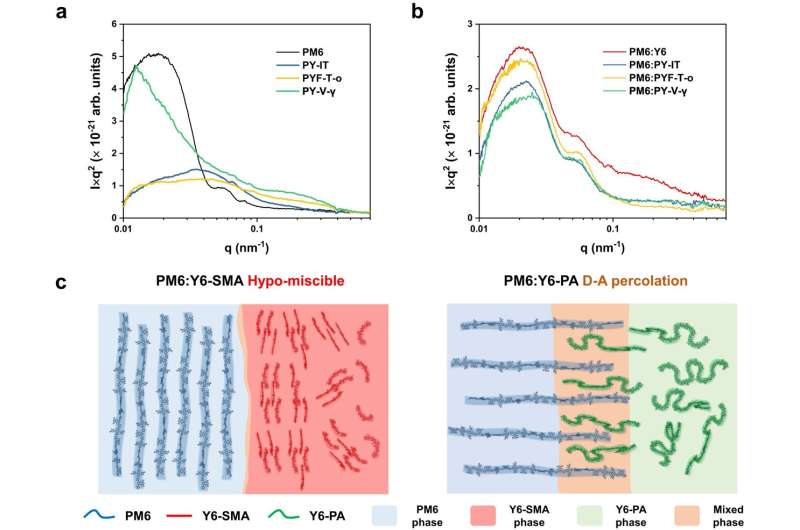Engineers uncover key to efficient and stable organic solar cells
A team of researchers led by Professor Philip C.Y. Chow from the Department of Mechanical Engineering at the University of Hong Kong (HKU) has made a significant breakthrough in the field of organic photovoltaics.
Their research, titled “The role of interfacial donor–acceptor percolation in efficient and stable all-polymer solar cells,” paves the way for more sustainable and viable solar energy solutions for daily applications. The discovery was published as a featured article in the journal Nature Communications.
Organic photovoltaics (OPV), which employs cost-effective, printable, and environmentally friendly polymer semiconductors, holds tremendous potential for generating sustainable and renewable energy. However, due to the soft nature of polymers, achieving OPV devices with both high efficiency and long operation stability has been a long-standing research challenge.
The research team’s work has shed light on how to overcome this challenge. The team focused their research on a new type of electron-accepting molecule called Y6, which, when polymerized, has shown great promise in enabling efficient and stable OPV devices.
By investigating the ultrafast charge dynamics using femtosecond laser pulses, the researchers first discovered that controlling the degree of aggregation of the polymerized Y6 acceptors (Y6-PAs) plays a crucial role in promoting electricity generation.
The research team further revealed that Y6-PAs exhibit higher miscibility with the donor polymer compared to small molecular acceptors of the same type. This miscibility allows for the formation of a nanoscale percolation network at the heterojunction interface, preventing the aggregation of Y6-PAs.
This nanoscale percolation not only enhances charge generation efficiency but also significantly improves the stability of the polymer blend morphology, reducing the loss in device performance over time when exposed to solar illumination.
In response to this breakthrough, Prof Philip C.Y. Chow expressed his enthusiasm, stating, “Our discovery opens up new possibilities for the development of efficient and stable polymer-based solar PV panels, paving the way for more sustainable and viable solar energy solutions that can be seamlessly integrated into our environment, including buildings, vehicles, electronic products and even clothes.”
The study was conducted collaboratively with Professor Harald Ade’s team from North Carolina State University in the U.S., Professor Yuanping Yi’s team from the Institute of Chemistry, Chinese Academy of Science, and Professor Hin-Lap Yip’s team from the City University of Hong Kong.
This interdisciplinary collaboration allowed for the integration of expertise from multiple research groups, including ultrafast optical spectroscopy, quantum chemical modeling, synchrotron X-ray scattering and solar cell device manufacturing. Dr. Zhen Wang, a Post-doctoral Fellow in Prof Chow’s team at HKU, was the first author of this study.
More information:
Zhen Wang et al, The role of interfacial donor–acceptor percolation in efficient and stable all-polymer solar cells, Nature Communications (2024). DOI: 10.1038/s41467-024-45455-0
The University of Hong Kong
Citation:
Engineers uncover key to efficient and stable organic solar cells (2024, April 25)
retrieved 26 April 2024
from https://techxplore.com/news/2024-04-uncover-key-efficient-stable-solar.html
This document is subject to copyright. Apart from any fair dealing for the purpose of private study or research, no
part may be reproduced without the written permission. The content is provided for information purposes only.

Comments are closed